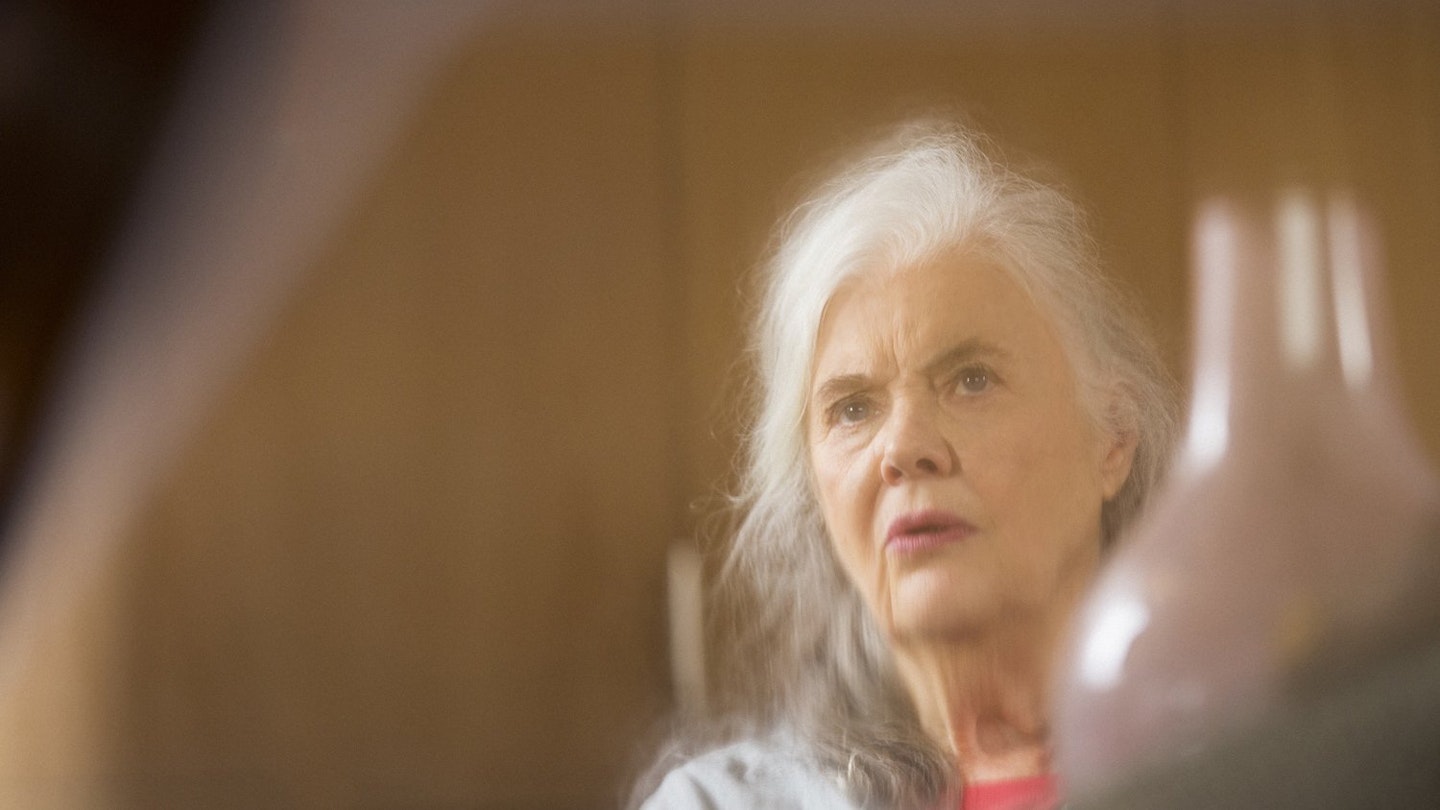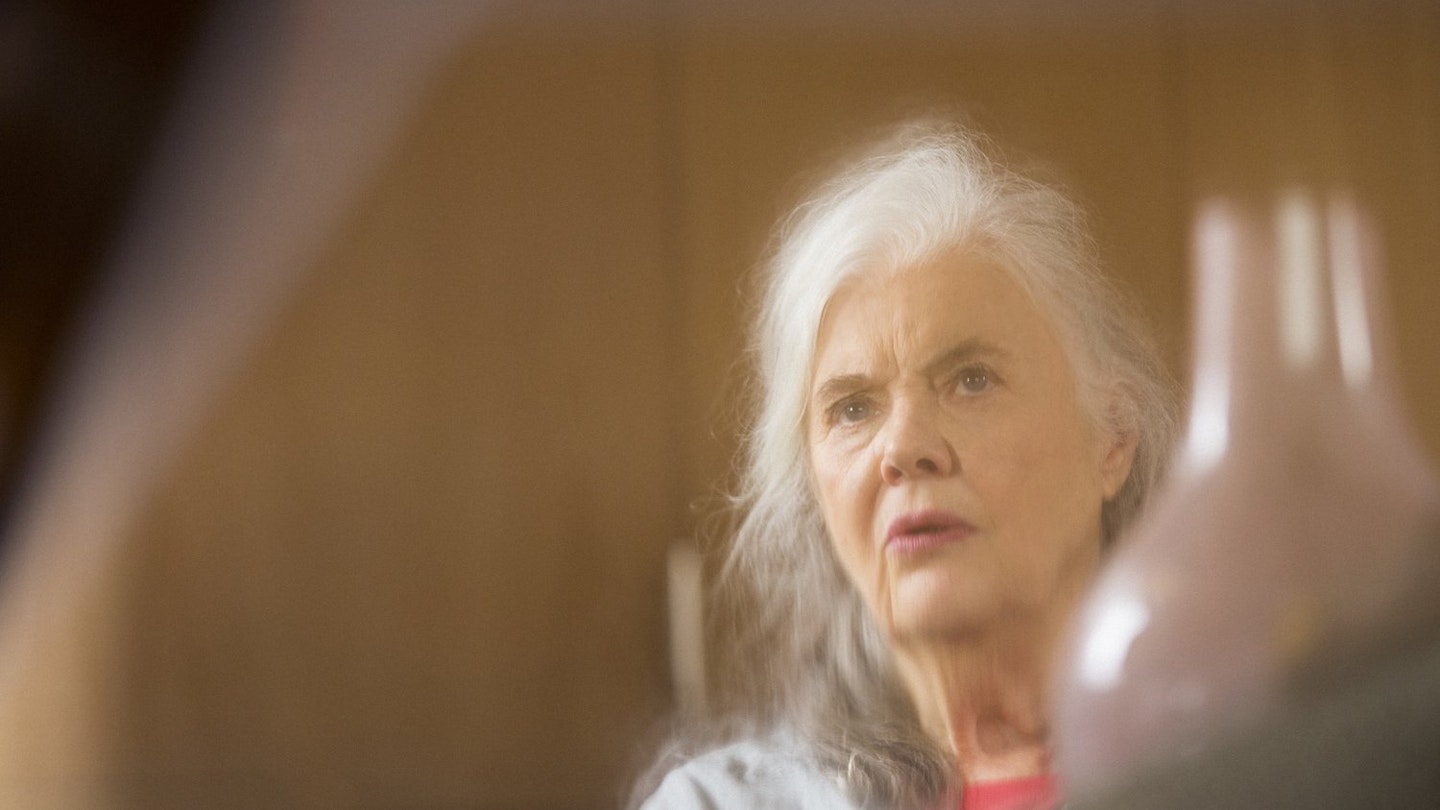If Valerian And The City Of A Thousand Planets is at the splashy, effects-driven, fluffy end of the movie sci-fi scale, then Marjorie Prime stands at the opposite pole. Thoughtful, intimate and driven by the big ideas of sci-fi literature, Michael Almereyda’s film shares some of the brainy, out-there qualities of his earlier work (Nadja, Hamlet) but finds a warmth rare in his filmography. It’s a restrained, artful look at memory, loss (and memory loss) and the way we use machines to feel more human. It’s a bit like Spike Jonze’s Her, or an episode of Black Mirror if Charlie Brooker traded in empathy, but Marjorie Prime occupies a unique space all of its own.
The battle between remembering and forgetting has rarely been so moving.
Based on Jordan Harrison’s 2015 Pulitzer-nominated play, the story begins with 85-year-old Marjorie (Smith, recreating the role she played on stage) talking to her ‘prime’,
a holographic version of her deceased husband Walter frozen in time in his forties (Hamm). Marjorie is forgetful in her dotage and her AI companion helps her to remember while relying on her to help fill in the gaps. As Marjorie’s daughter Tess (Davis) and son-in-law Jon (Robbins) enter the picture, the family’s complex relationship begins to emerge, dominated by one traumatic memory that begs to remain unsaid.

A small moment sees Walter remind Marjorie of how much they loved My Best Friend’s Wedding back in the ’90s — he delivers a devastating critique of the plot — with Marjorie choosing to remember they saw Casablanca. This is key to Almereyda’s point. Marjorie Prime is a film about how memories are not set in stone, how they are often finessed and revised to make the past more bearable. The story takes this theme forward as we follow the family well into the future, introducing even more primes. In lesser hands, this bold narrative turn could derail the intimate chamber feel, but instead it takes the story into even more melancholy but affecting territory. Characters come and go, but the fallible, evolving nature of memory remains constant.
Taking place almost exclusively in a sparse Long Island beach house, the film is dominated by dialogue — happily space is found for Mica Levi’s terrific string-based score — so you need great actors front and centre. Jon Hamm is terrific as Walter, sitting bolt upright, pitching just the right balance of compassion and machine-like qualities. Geena Davis (welcome back!) is superb as the bitter Tess and becomes increasingly more important and impressive as the film goes on. Tim Robbins brings subtleties to a decent man used to negotiating his wife’s difficult nature. But to a large extent, this is Lois Smith’s film, by turns funny and sharp, multi-dimensional and sad. In her skilful hands, the battle between remembering and forgetting has rarely been so moving.

